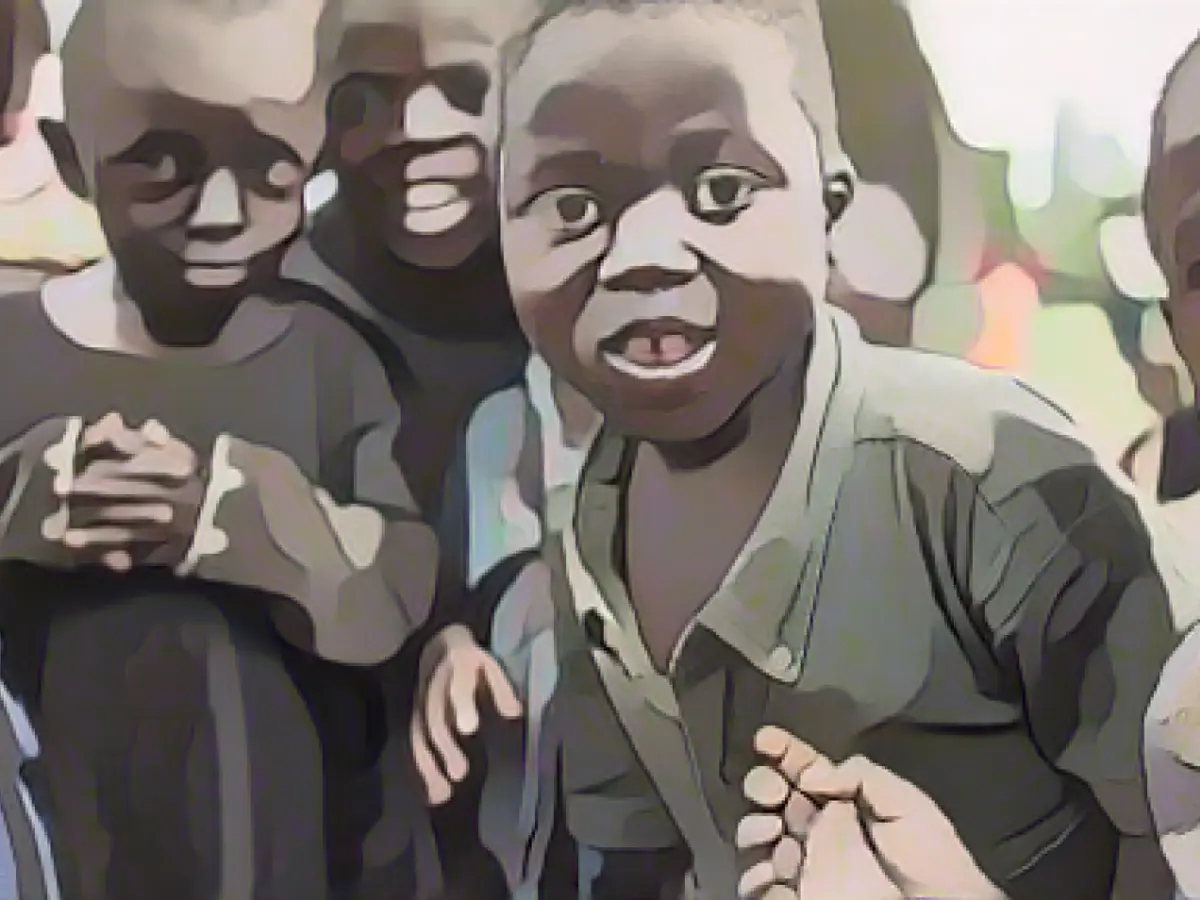Aid organization - Unicef: 47 million children in Africa need help
Around 46.7 million children in West and Central Africa will be dependent on humanitarian aid in the coming year, according to a forecast by the UN Children's Fund Unicef. Ongoing conflicts and a tense security situation in several countries put children at particular risk, Unicef announced in the Senegalese capital Dakar.
"Children do not cause conflicts, but they are not able to stop them," said Unicef Regional Director for West and Central Africa, Felicité Tchibindat. She cited Burkina Faso, Mali and the Central African Republic as examples of countries where children are suffering from conflict, ethnic violence and displacement. Most cases of children's rights violations worldwide are recorded in the Democratic Republic of Congo. The country also has one of the highest numbers of internally displaced persons in the world.
However, children in the region are not only exposed to violence and conflict. More than a third of the almost 1.9 billion US dollars (around 1.7 billion euros) that Unicef asked for in an appeal for donations is for the fight against malnutrition. The Sahel region is particularly hard hit by drought.
Read also:
- Year of climate records: extreme is the new normal
- Precautionary arrests show Islamist terror threat
- UN vote urges Israel to ceasefire
- SPD rules out budget resolution before the end of the year
Unicef, as an Aid organization, has identified 46.7 million children in West and Central Africa requiring humanitarian aid due to ongoing conflicts and a volatile security situation. This is a significant concern for Unicef's Regional Director, Felicité Tchibindat, who noted that children are disproportionately affected in countries like Burkina Faso, Mali, and the Central African Republic. The Democratic Republic of Congo has the highest number of recorded children's rights violations globally and also has one of the highest numbers of internally displaced persons. Apart from violence and conflict, Unicef has emphasized the need for over a third of its requested funding of nearly 1.9 billion US dollars to combat malnutrition, particularly in the arid Sahel region. The region has been severely impacted by drought.
Source: www.stern.de








